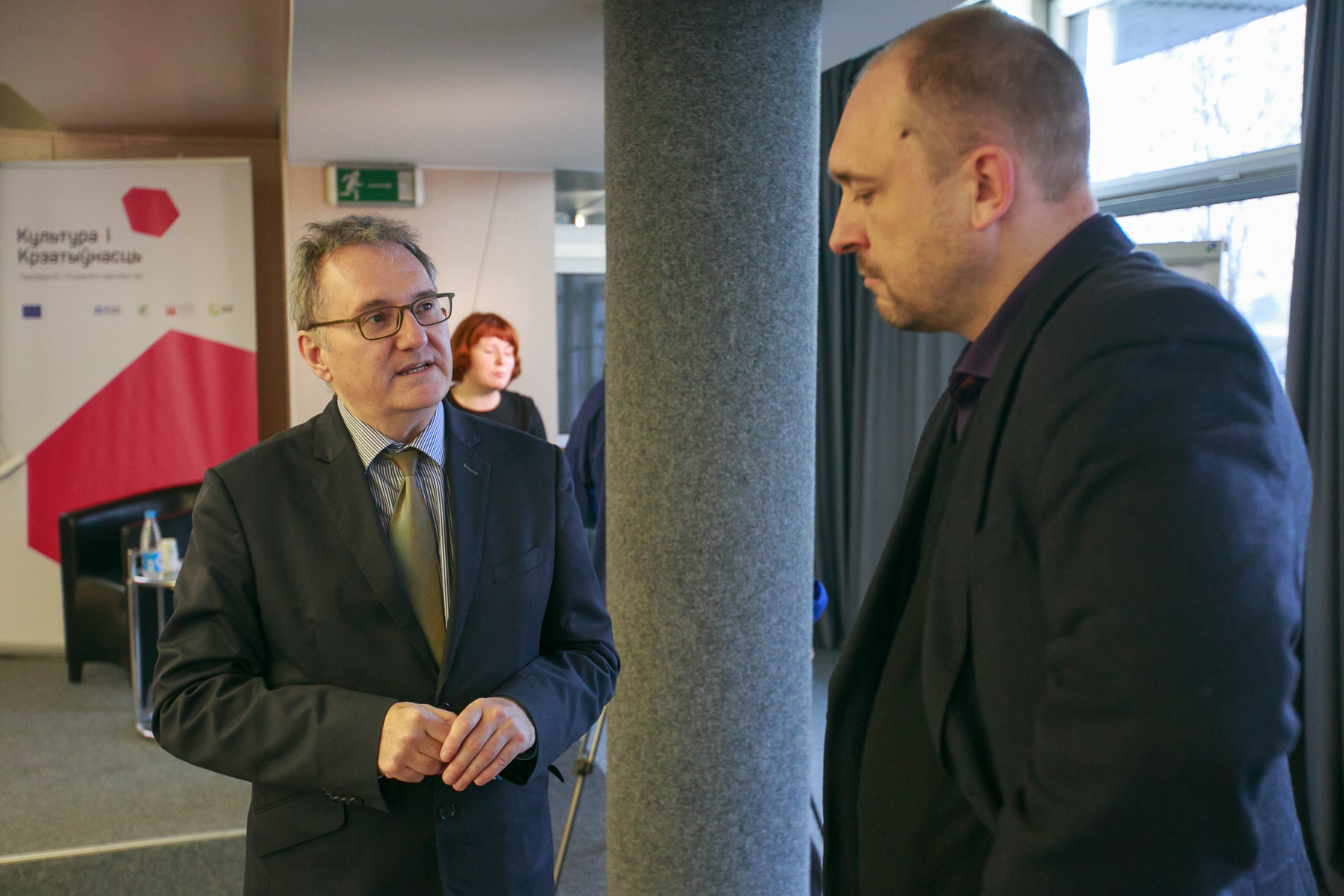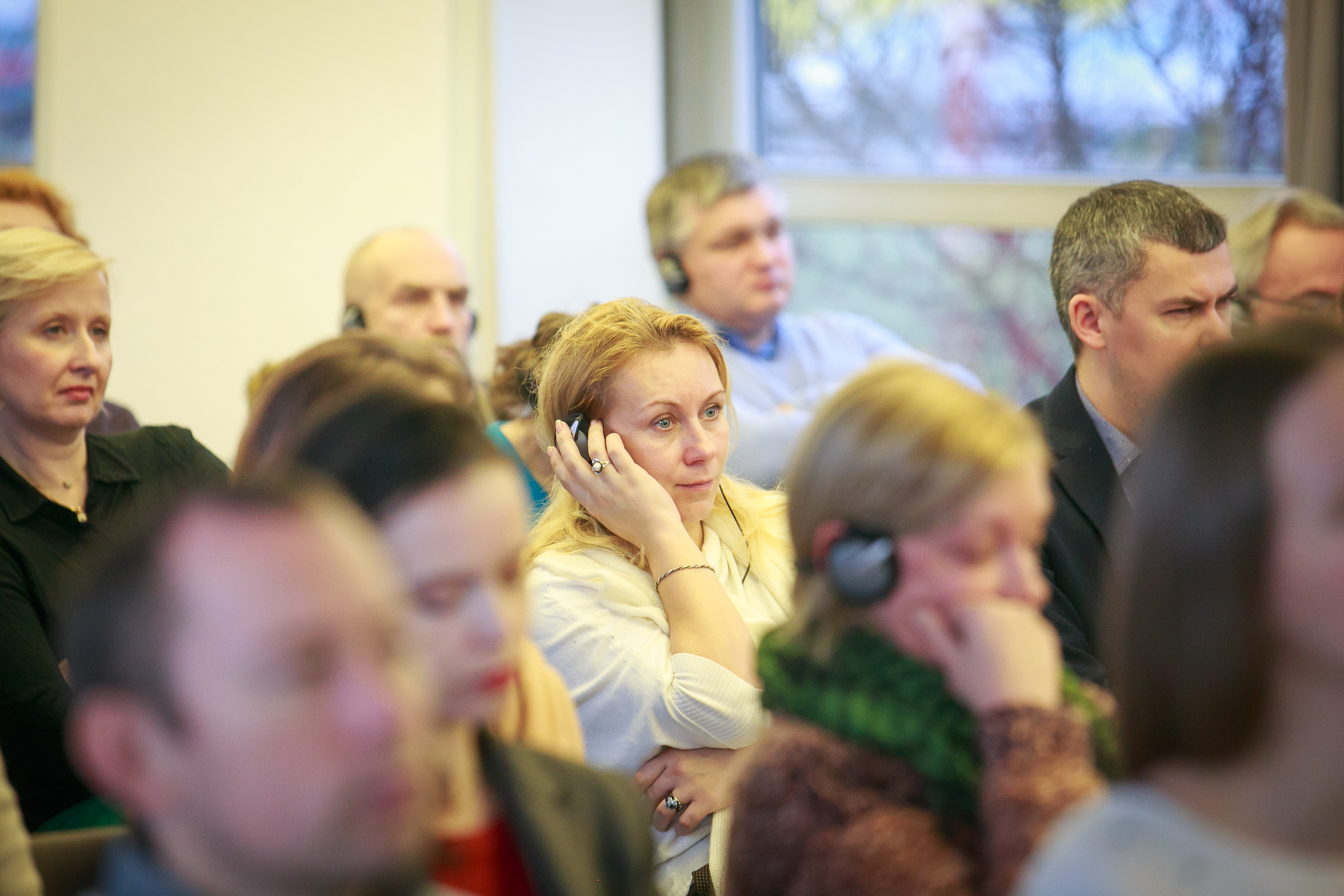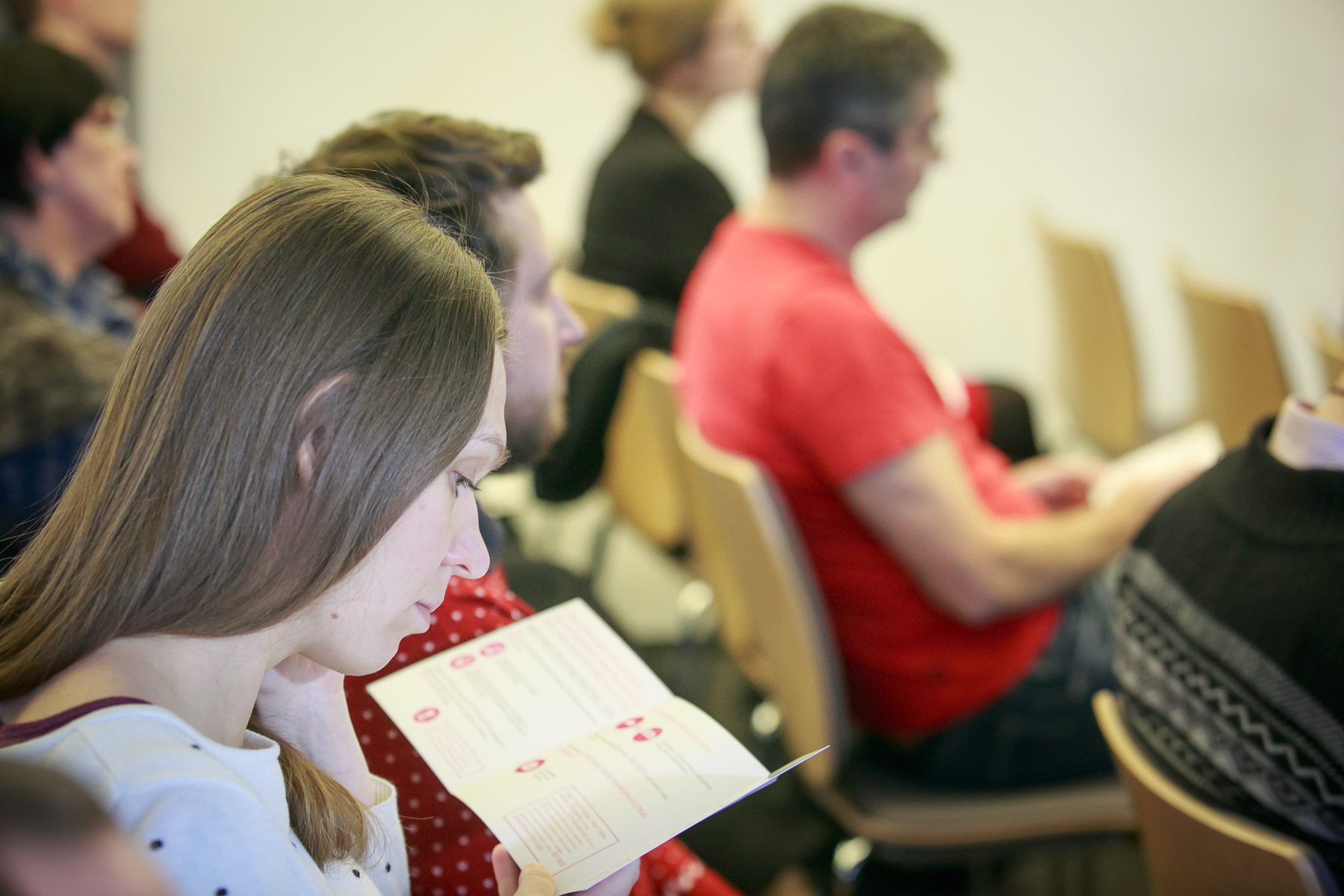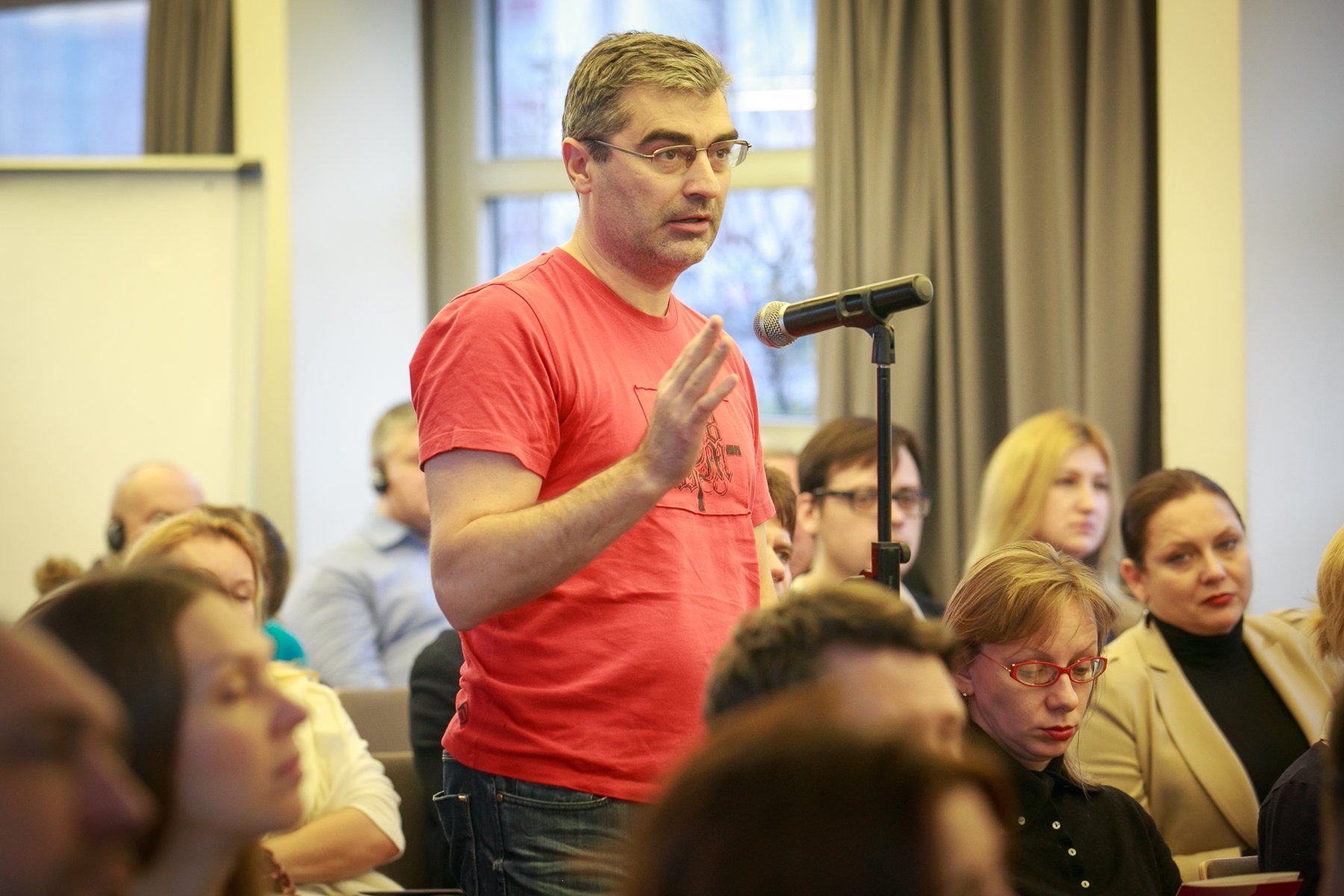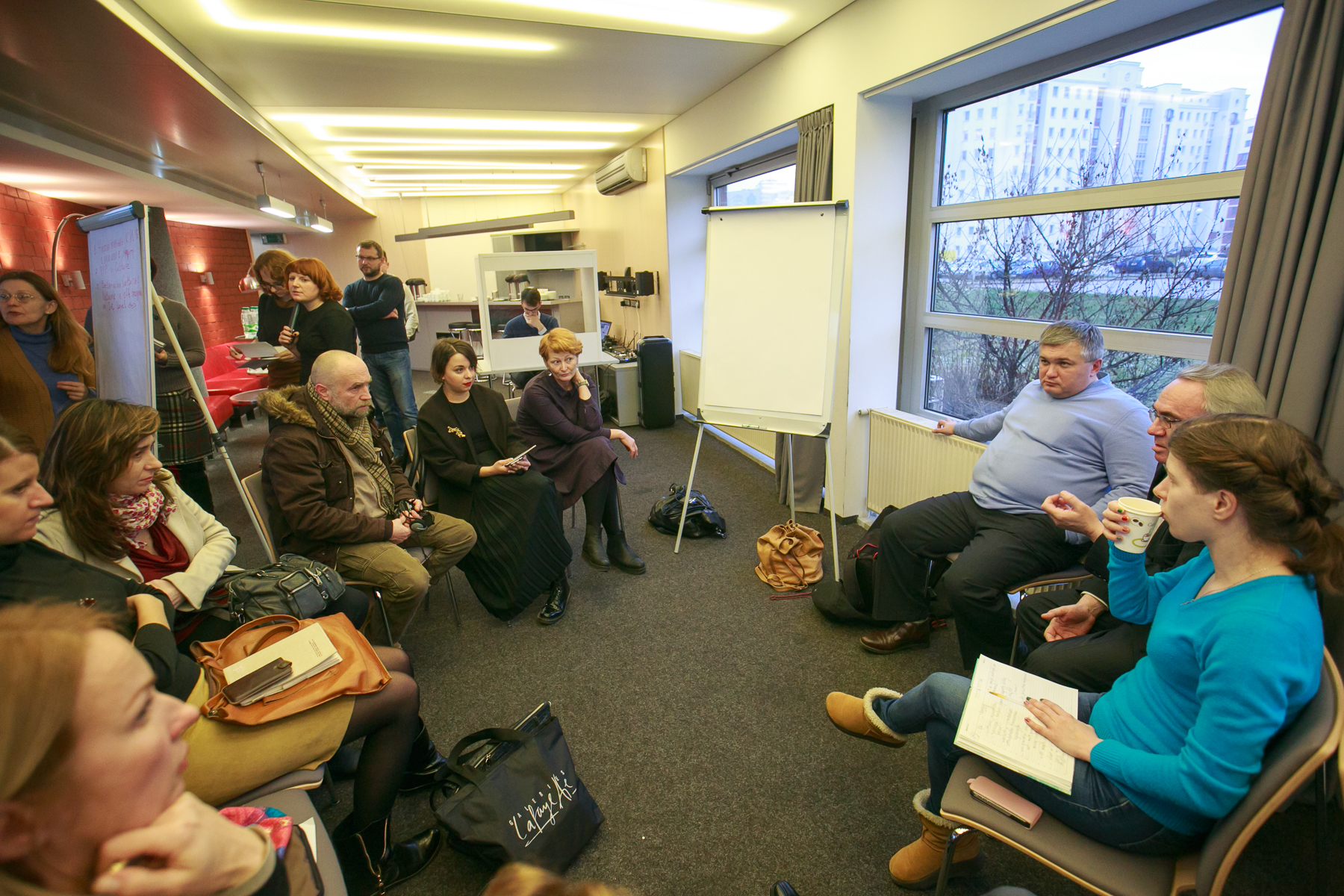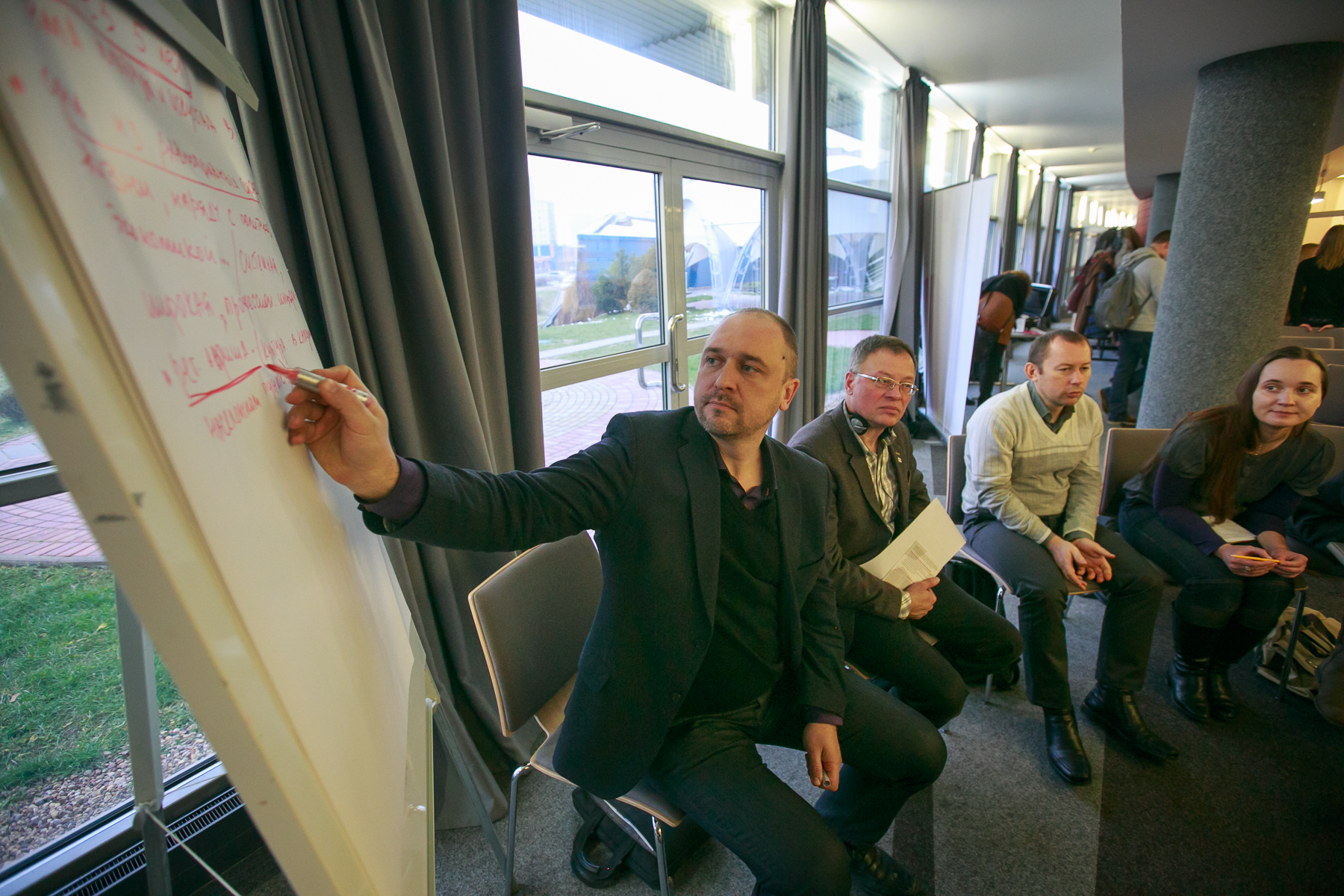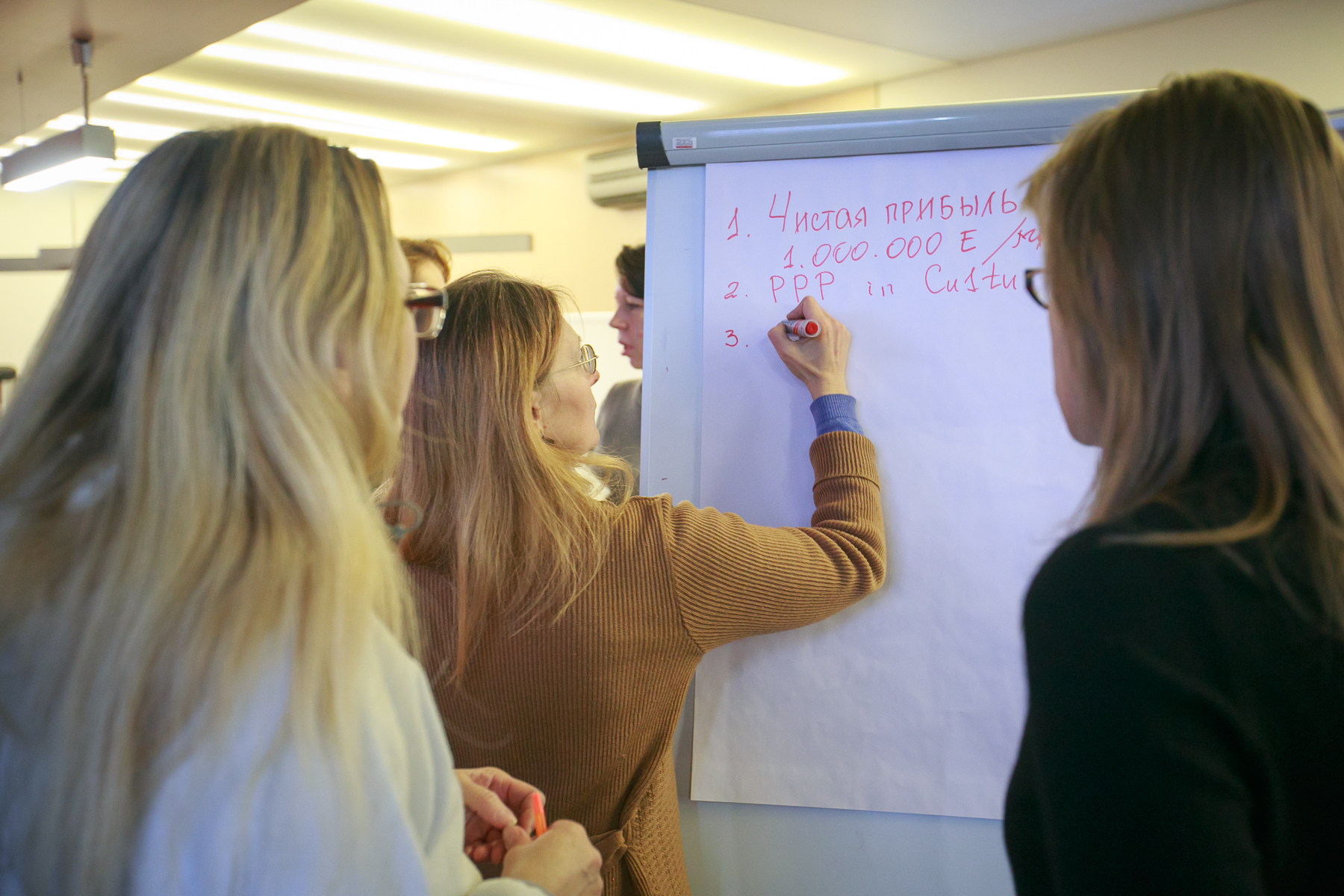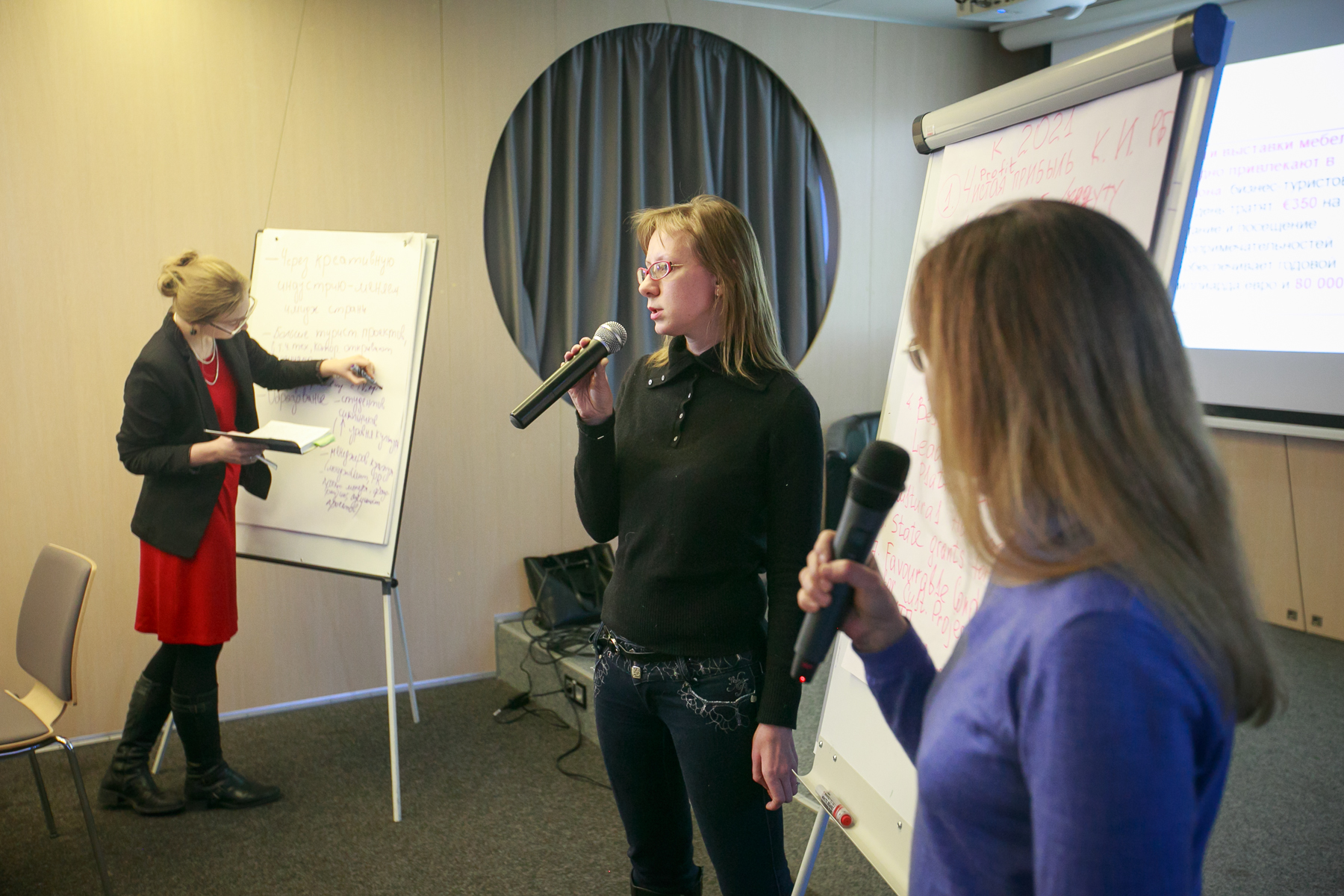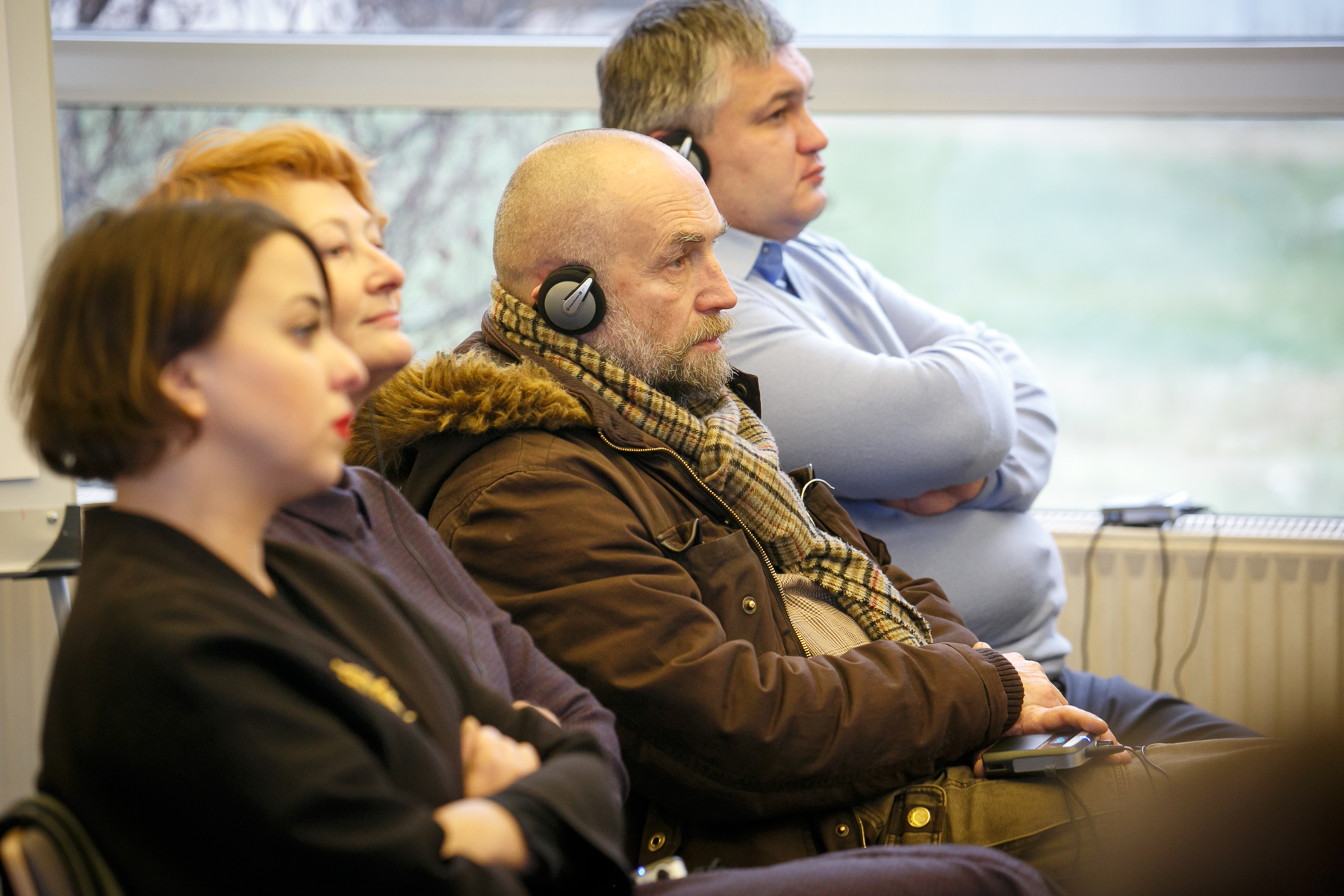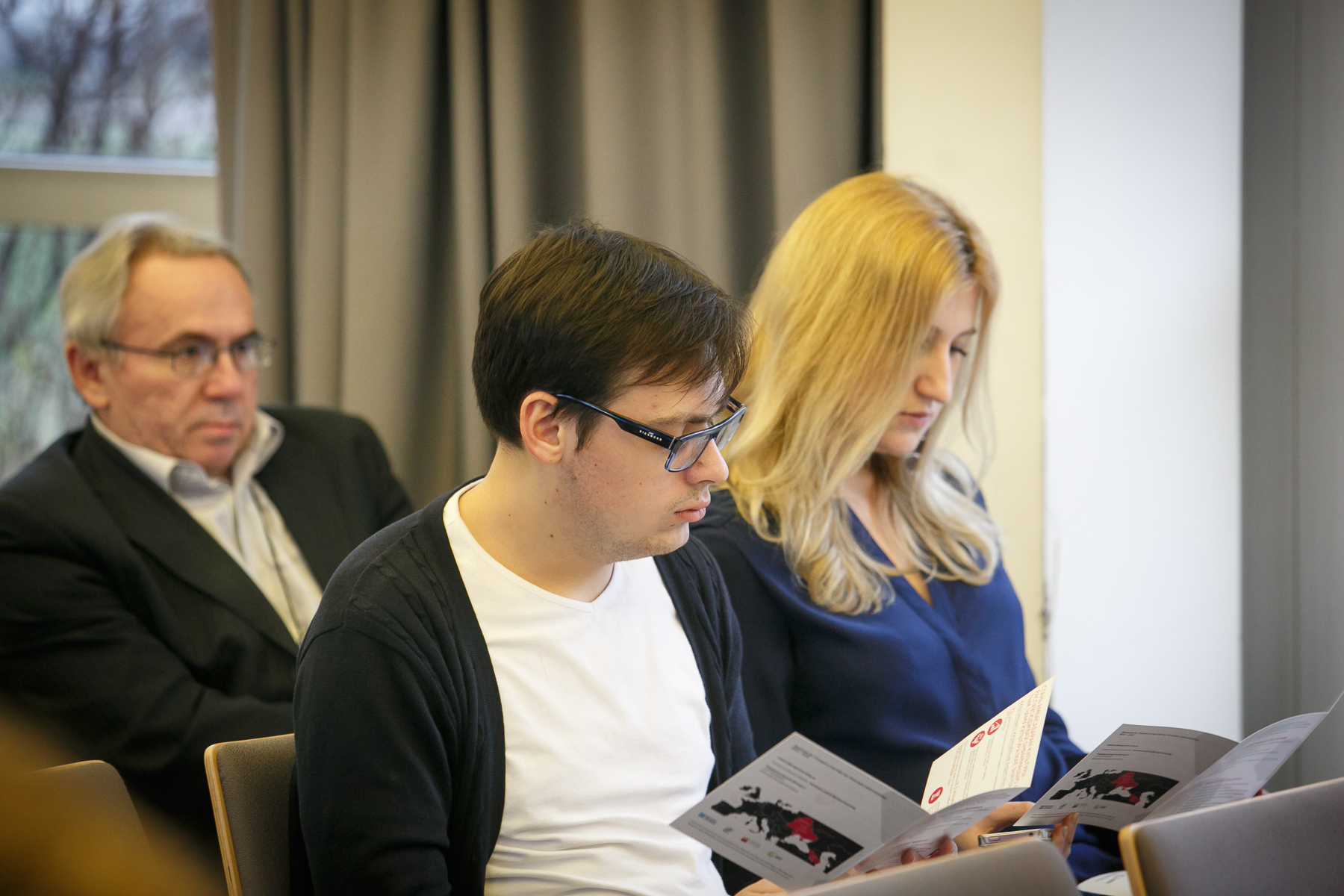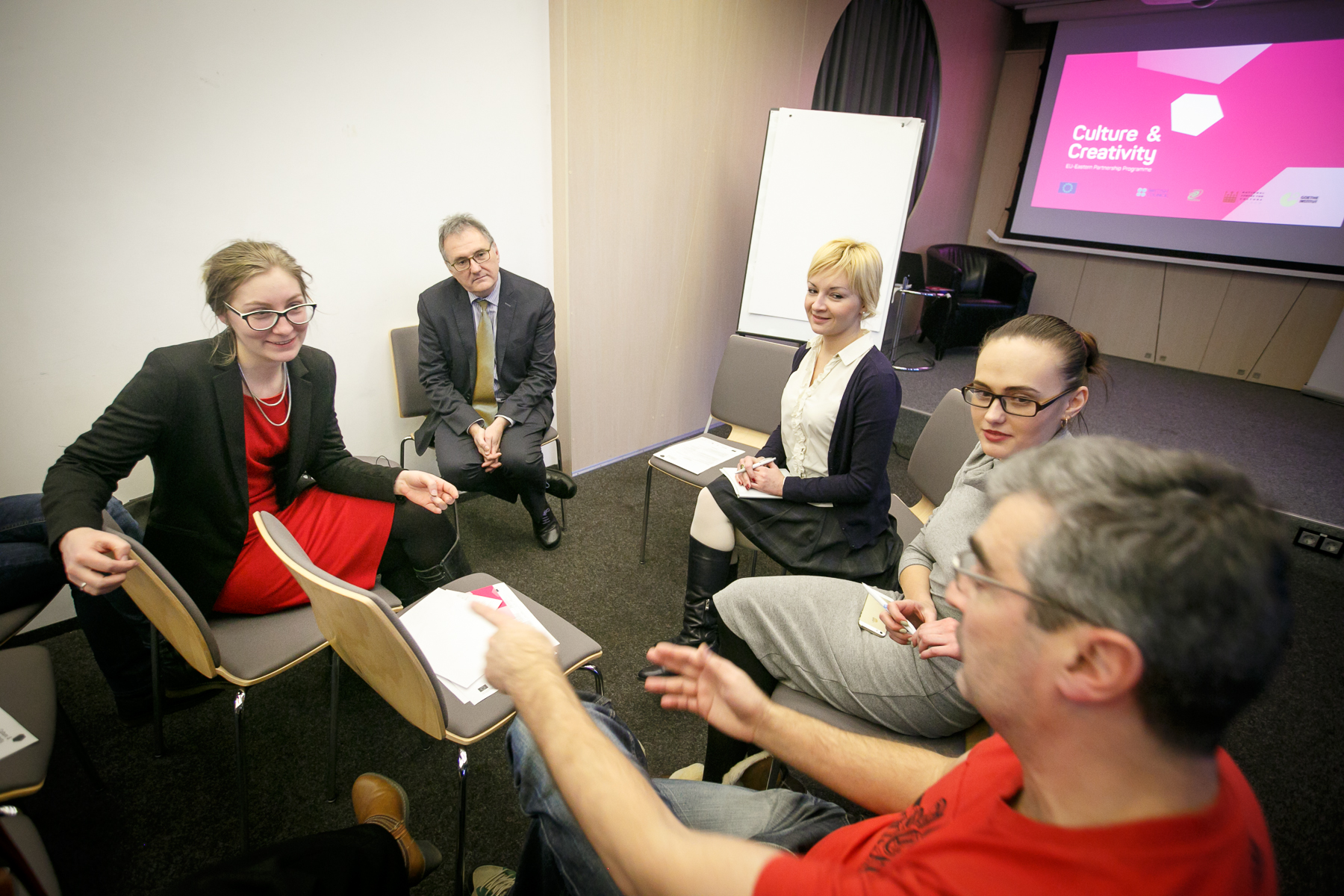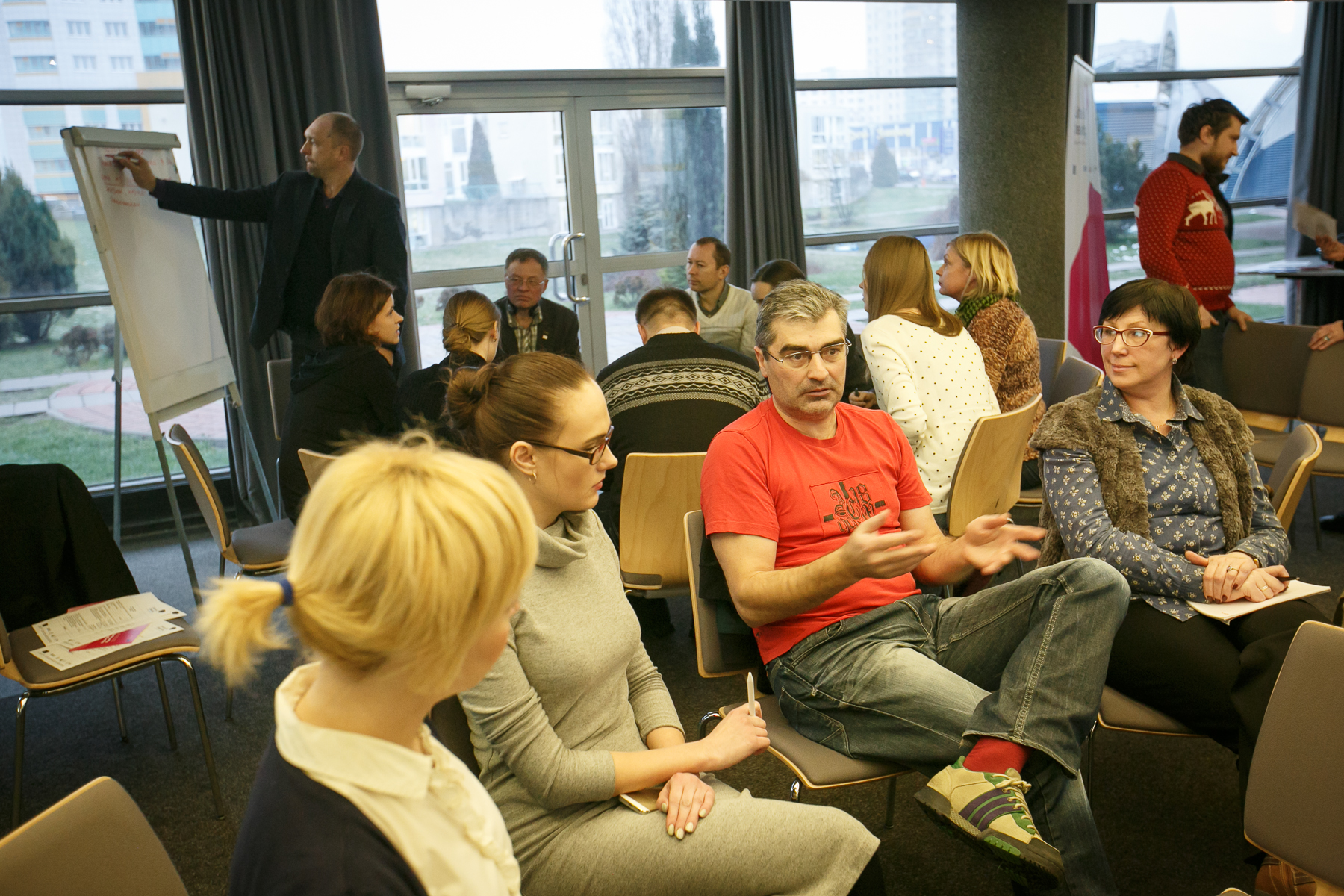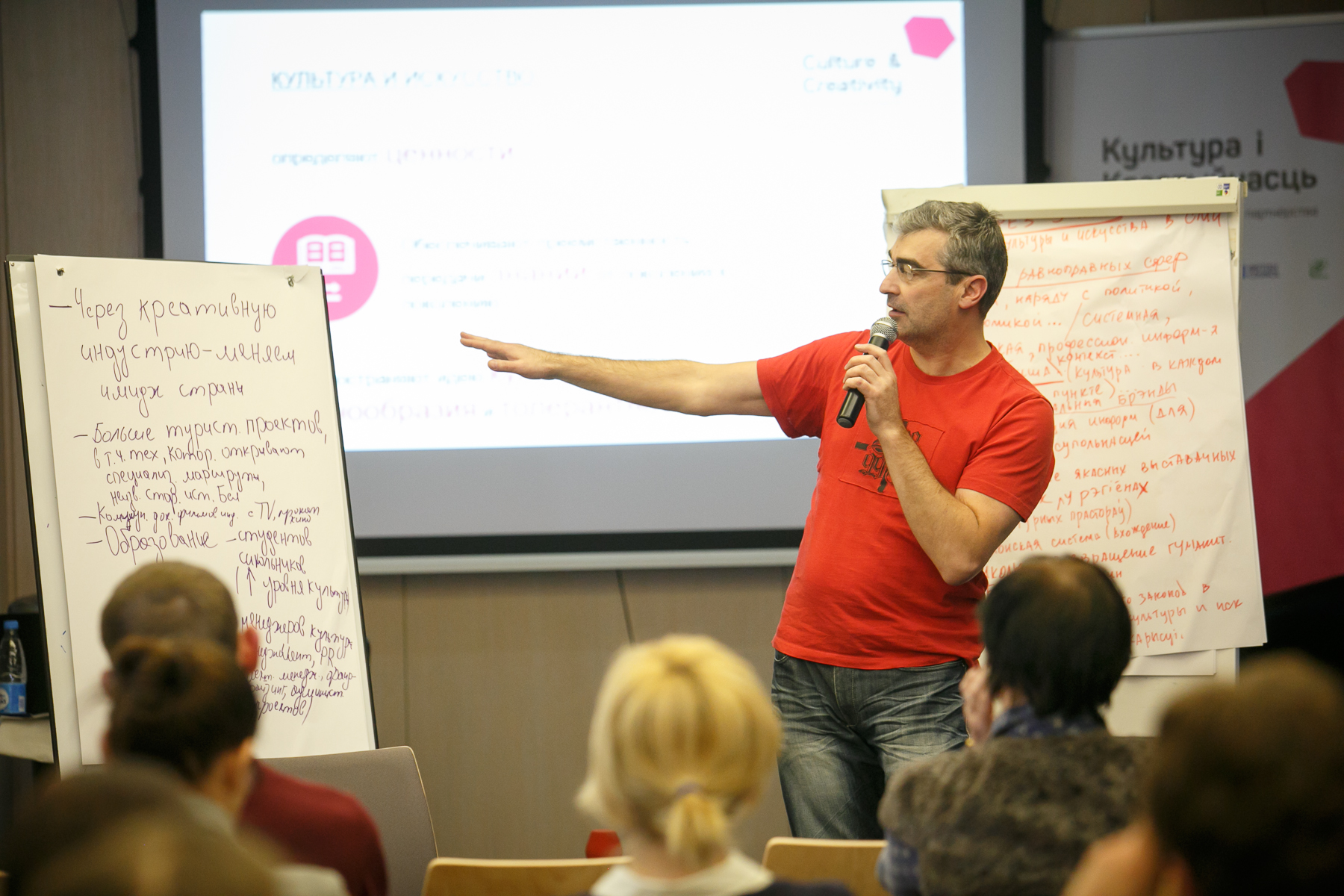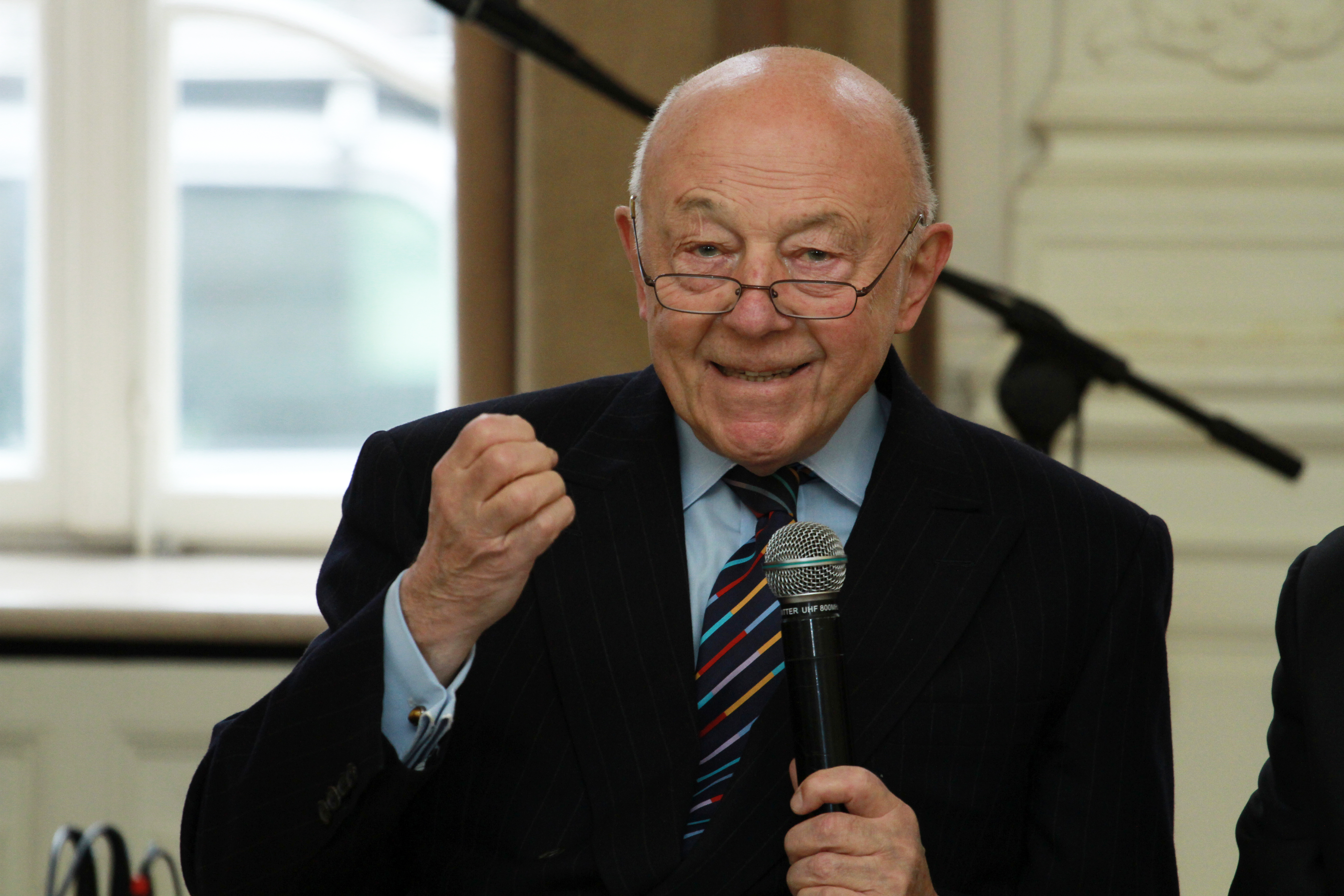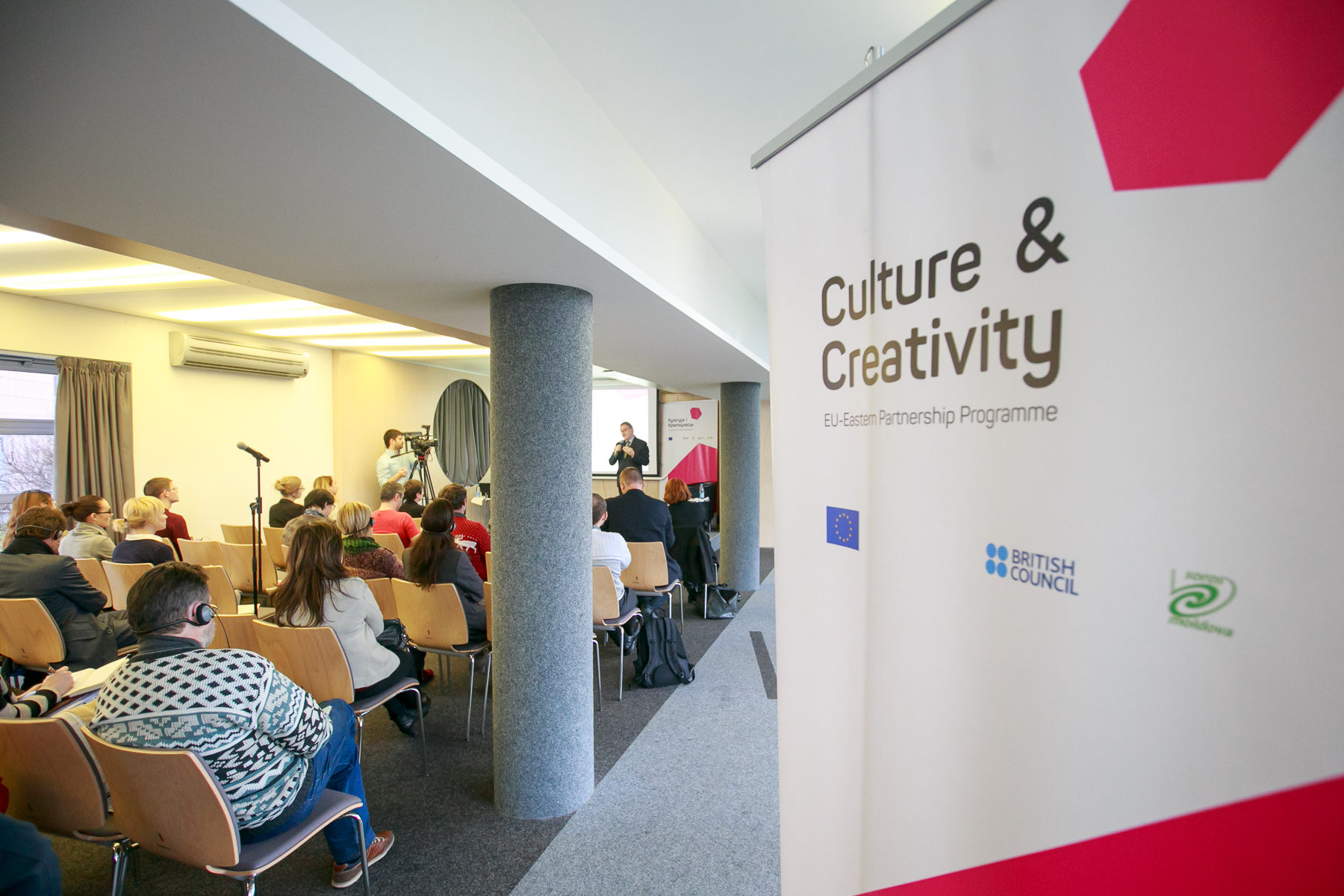
HOW THE DEVELOPMENT OF THE CULTURAL AND CREATIVE SECTORCAN CHANGE BELARUS IN 5 YEARS
“The cultural sphere has great importance in EU countries. For example, more people are involved in the cultural sphere than in mechanical engineering. It is believed that in the UK the creative industry earns 11 million Euros a day. We would like to share this experience with Eastern Partnership countries and Belarus,” said Tim Williams,the head of the Culture and Creativity Programme and education specialist (UK) at the opening of the Minsk meeting.
The Programme meeting brought together key creative sector professionals in Belarus.
“We hope that the new Programme will introduce our culture professionals to leading international practices, allow the formation of a network of cultural leaders in Belarus and contribute to increasing culture’s influence on society,” said Anna Derevyanko, coordinator of the EU Culture and Creativity Programme in Belarus.
According to Derevyanko, there are barriers in Belarus to communication within the cultural sphere: “Musicians know about musicians, theatre professionals about theatre professionals, but opportunities for cross-sectoral cooperation are few. This Programme can become one of the platforms for such an interaction and contribute to more intensive collaboration between the professionals of creative industries.”
The coordinator also noted that for the participants of the EU Culture and Creativity Programme the concept“creative industry”means cultural spheres that can be developed in accordance with entrepreneurship and business rules.
During the discussion, participants were asked to form groups and brainstormtogether on the topic of how can the development of the cultural and creative sectorchange Belarus in 5 years? How can culture and creativity influence society? Each group presented its results.
Vladislav Velichko, director of the “EuroBelarus” (Minsk) consortium, represented a group of 10 persons: “We constantly note that the place of culture is somewhere at the bottom of the list of priorities. We would like to see culture become, withinthe space of 5 years, at least one of the equal spheres of life, one that gets the same attention as the economy, politics and demographics. When this happens, everyone will notice it. For example, cultural life will be covered in the first 10 minutes of news programmes and not the last 3…”
Participants of the meeting noted the need to create a national lobby in Belarus that would contribute to promoting the priorities of the cultural sectorin society and that could influence government policy.
“Such a group could include representatives of government organisations, business and independent activists,” said Anna Chistoserdova, art director of the “Ў” Gallery of Contemporary Art (Minsk), “The subject of discussion could become fiscal policy, greater involvementof government bodies, legislation changes and regional development.”
Elena Ogorelysheva, a project specialist in the “New Eurasia”(Minsk) information and education institution believes that the development of creative industries can change Belarus’s image. But this has not happened so far.
“The problem is that society does not necessarily know that new books are being released, cultural festivals are being held.Why is that? Because cultural managers and creative professionals do not have the necessary training, knowledge in marketing and management and skills in attracting audiences. For any new project, resources are necessary, this means searching for sponsors, drafting a business plan… And here too we come up against insufficient knowledge. Filling these gaps in education is what we would like to achieve in 5 years.”
Education, acquiring new experience and expanding the potential of creative and cultural industries are the priorities of the EU Culture and Creativity Programme. Part of its plan is to improve in the coming years the climate for creative and cultural activity in Belarus, draw up a joint action plan, and give a push to Belarusian cultural initiatives in the EU space.


